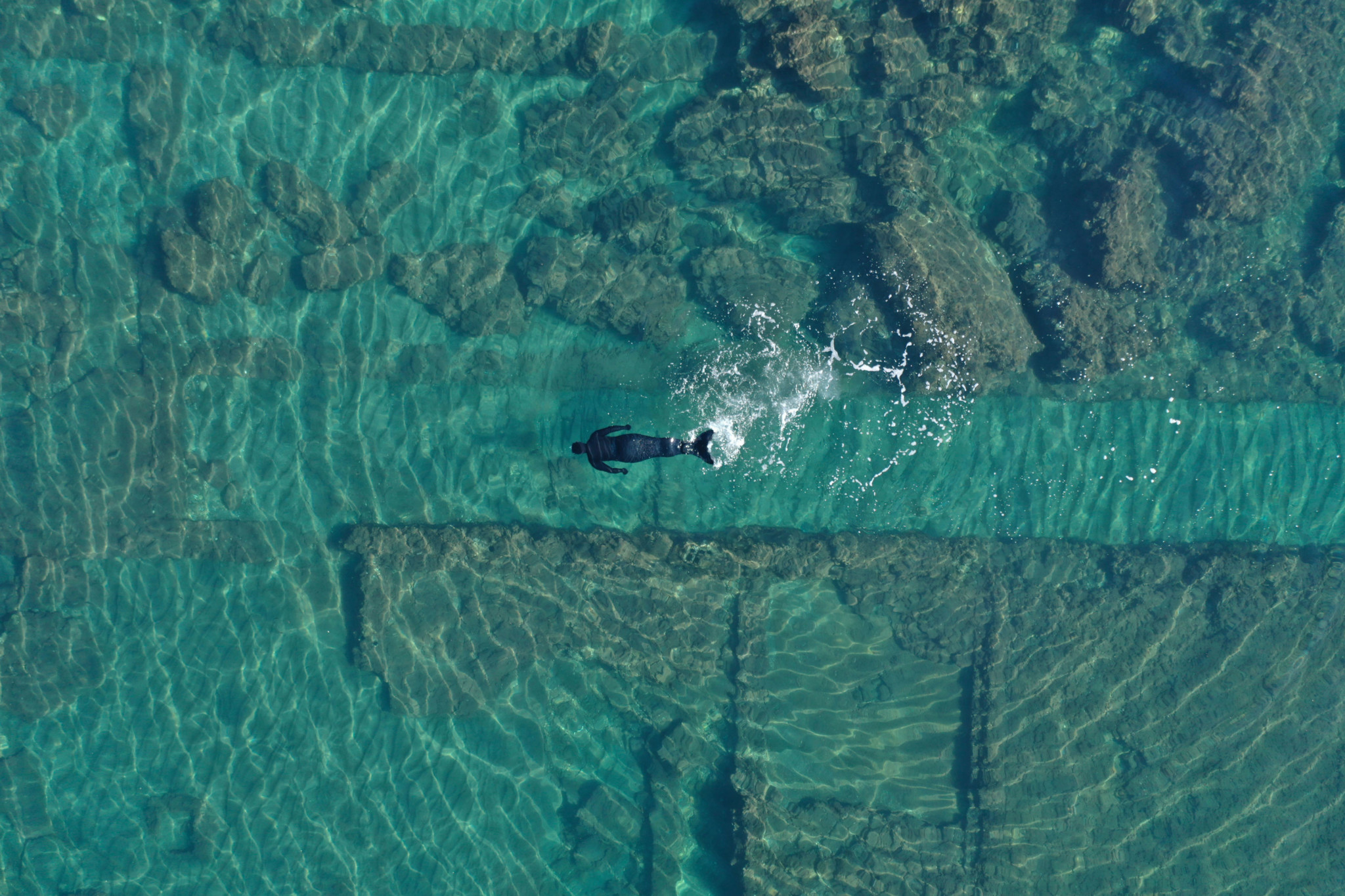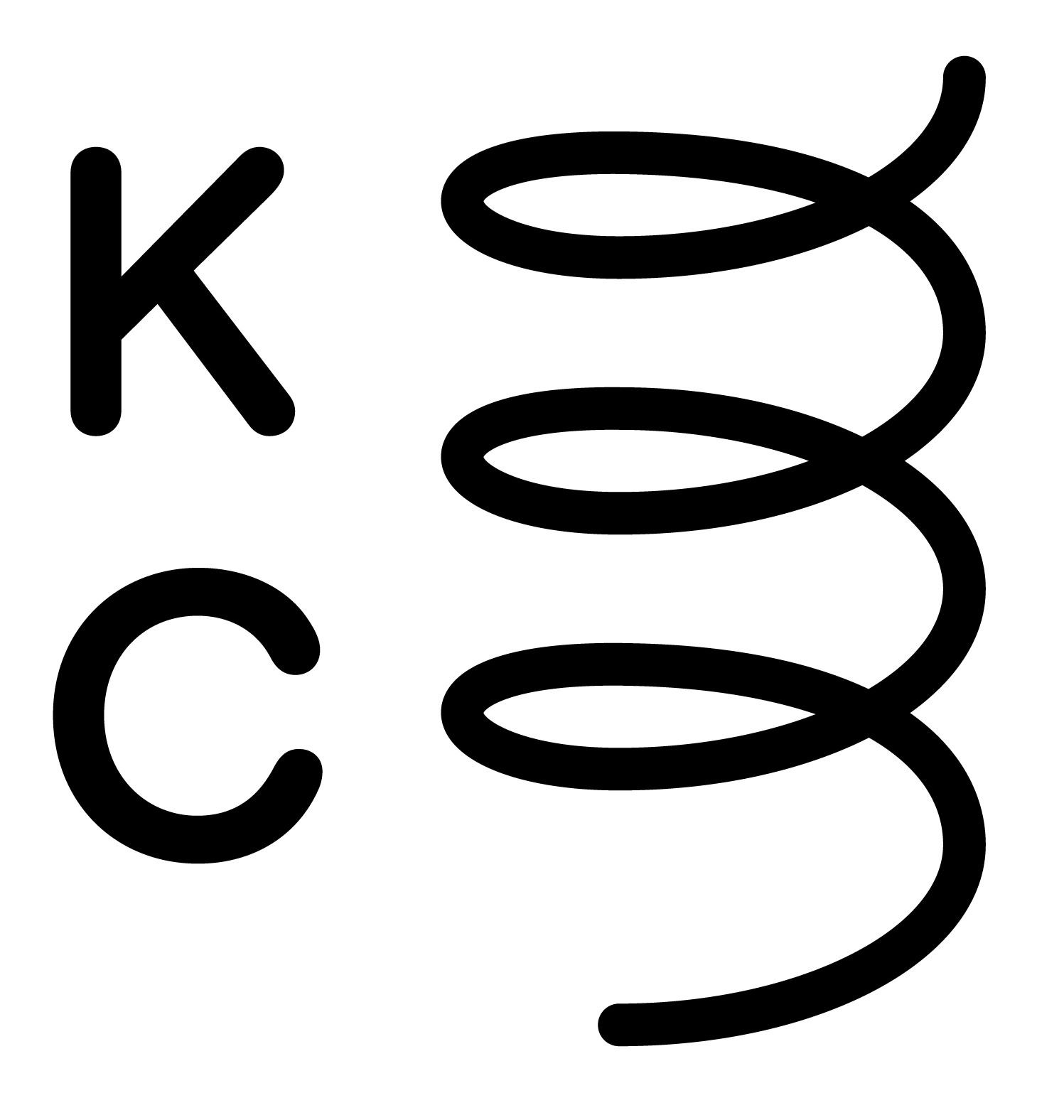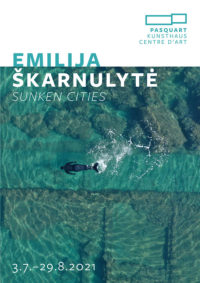

EMILIJA ŠKARNULYTĖ – Sunken Cities
3 July 2021 – 29 August 2021
«Hold your breath. Drop. Dive. Open your eyes. Leave your body at the surface. You are now all eye, like a drill; all tail, like a fish. What are you trying to extract, to mine from your cool liquid entry? You pass, cool as a camera with your lens of language, through dry corridors of nuclear seas, liquid hallways of sunken cities, strange scaffolding of deep-sea mining, sculptural figures of destroyed empires. Your dry eye reaches for: Mosaics of the sea floor or mosaics of the control room; a body slithering, snakelike, over its nuclear control panels. Elsewhere, in another deep, jellyfish are loose and luminescent and labouring as flowers articulating the black. Architectures rise like language inside you, lean and lucid or marmoreal and voluptuous, each writ across the wet pages of southern bodies of water, dry pages of northern bodies of tundra. […]
Who brought you here? Some mermaid archaeologist, some modern undine, some artist-as- siren-as-museum guide. Some body as soundwave, as cognition only. What cities are sunk deep inside you? […] Mosaic, neoprene, saline, chlorophyll, oil, mineral, sex, empire, bivalves, shifting tectonic plates, shifting desires, some ancient volcanic basin. […] You are not pillaging the sunken city, though, you are swimming it. Now count before you go deeper into it: one, two, three, four, five—now go.»
Quinn Latimer on Emilija Škarnulytė’s Sunken Cities (2021)
Emilija Škarnulytė (b. 1987, Vilnius, Lithuania) is a visual artist and film-maker. She researches the psychological power wielded on us by our environment. Her videos and multi-media installations, which interweave fiction with documentary films, reflect the invisible relationships between the physical world and our social power of imagination – from the perception of geological time and its influence on our relationship to history to the way in which immense conflicts inscribe themselves in the structure of the Earth. For the exhibition at the Kunsthaus Pasquart she has created an immersive video-sound-landscape that runs through all the spaces of the first level. The second part of the display includes new productions and existing works that reflect on the artist’s career as she has engaged with various narratives, materials and techniques. Alongside video works objects, photography and mosaics complement the exhibition.
In Škarnulytė’s films of the last few years places often appear in which contemporary political issues are negotiated, fluctuating between human and non-human worlds and erasing the boundaries between geological, ecological and cosmic powers. She touches on fundamental problems of our historic period: climate change and the future of humankind. She confronts these with the filmic exploration of varied narratives, which at the same time remain open but merge with one other. The artist takes herself on a search for truth, showing us an anthology composed of different histories. Škarnulytė’s poetic stagings leave behind a feeling of contemplative anxiety, generated by the encounter with everything that is larger than us, larger than life – a threatening climate catastrophe, natural phenomena, ideological constructions, gigantic scientific (infra)structures and human knowledge that leave indelible inscriptions and scars on the planet.
With Sunken Cities (2021), Emilija Škarnulytė creates an immersive film environment in the Galeries, in which the different rooms function as a time-line. She produces the effect of total immersion in a multi-dimensional landscape in which our gaze is duplicated by the mirrored ceiling and we simultaneously become witnesses of a future, contemporary and past world. The artist opens the perspective with this black, reflective surface, allowing us to experience it as a visual horizon that looks like an ocean of liquid oil. A thin line above and below water that separates the real and the quantum. Within this algid landscape, devoid of humans, appears the ancient, mythological figure of the siren. Roger Penrose, one of the best-known theoretical physicists of our time, described the mermaid in one of his inter-disciplinary texts as the representative of the magic and the mystery of quantum mechanics. Like water, she exists in various aggregate conditions, consisting of molecules that change and spread. She takes many guises: is human and simultaneously fish, a cyborg, a machine. Škarnulytė confronts these disused technological structures, shrouded in myths, and abandoned places marked by decay with this deeply symbolic figure as a counter-myth. The mermaid appears here as an intermediary between nature and technology, between human and non-humanoid creatures. She gives the impression of returning from the future to the planet, in order to explore these sunken cities and technological ruins. It is a retro-futuristic view of our planet, a perspective from another time, in which the human race has already become extinct and nature has taken over. Or as Škarnulytė expresses it: «the ruins of human activity seen from a distant future».
On the second floor of Kunsthaus Pasquart Emilija Škarnulytė is showing films that investigate singular moments in time and space. With mythologies in mind, the artist takes us to the edge of warring civilizations, under the northern lights near the magnetic pole, at nuclear power plants and mystical deserts where space travellers play saxophones in scintillating robes and concoct curved utopic spaceships. She watches a grandmother blinded by nuclear meltdown touch with her hands the monuments of the fallen empire that caused it and with her ally Tanya Busse in their duo New Mineral Collective proposes pleasure as a revolt against extractivism.
Curator of the exhibition
Stefanie Gschwend, Associate Curator Kunsthaus Pasquart
Publication
On the occasion of the exhibition the publication Emilija Škarnulytė. Sirenomelia with texts by Andrew Berardini, Sir Roger Penrose, Nadim Samman and Alison Sperling will be published by Sternberg Press (ENG).
Artist’s talk
Sun 4.7.2021, 2pm (eng) Emilija Škarnulytė in conversation with Yvonne Volkart, Dozentin für Kunst- und Medientheorie FHNW Basel
Art at noon
Fri 20.8.2021, 12:15 am (dt/fr) Short visit followed by a lunch snack. Registration: info@pasquart.ch, CHF 15.-
Guided tours
Thurs 8.7.2021, 6pm (dt) Stefanie Gschwend, curator of the exhibition
Thurs 12.8.2021, 6pm (dt) Felicity Lunn and Stefanie Gschwend, curators of the exhibitions
Thurs 26.8.2021, 6pm (fr) Julie Carron, art historian


